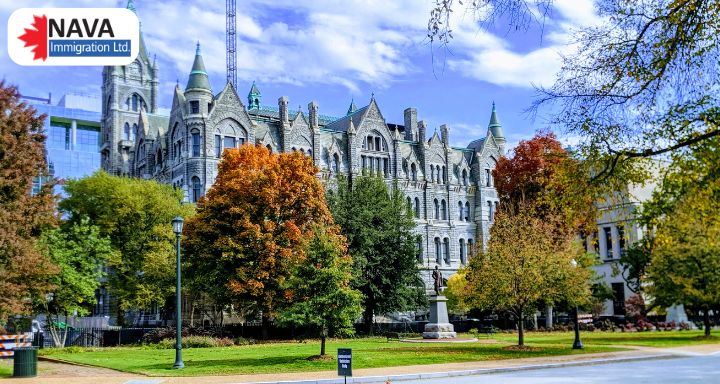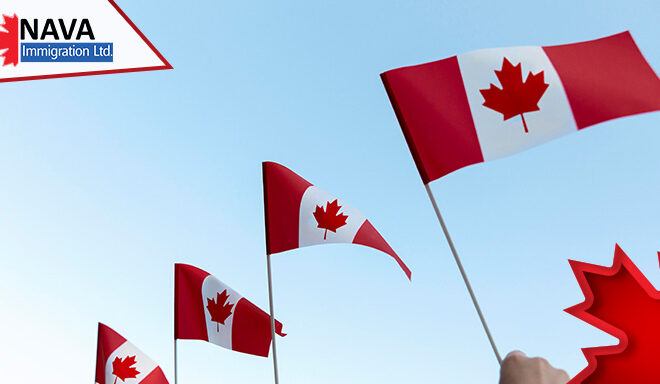Canadian Universities Earn Top Global Rankings
Canada universities earn top global rankings for several subjects. Several Canadian universities have earned spots among the top 100 globally in various subjects, according to the latest QS World University Rankings by Subject.
Published in its 15th edition, this ranking helps students identify top universities based on their field of study and career aspirations.
Ranking Overview
The QS rankings evaluate 55 subjects across five broad academic areas:
- Engineering and Technology
- Life Sciences and Medicine
- Natural Sciences
- Arts and Humanities
- Social Sciences and Management
Below is a look at some Canadian universities that ranked among the top 100 globally in these categories:
| University | Engineering and Technology | Life Sciences and Medicine | Natural Sciences | Arts and Humanities | Social Sciences and Management |
| University of Toronto | 17 | 13 | 20 | 14 | 14 |
| University of British Columbia | 31 | 25 | 22 | 19 | 20 |
| McGill University | 45 | 27 | 48 | 36 | 39 |
| University of Waterloo | 47 | — | 72 | — | — |
| McMaster University | — | 59 | — | — | — |
| University of Alberta | — | 86 | — | — | — |
Note that if a university is not listed for a subject, it means it did not rank within the top 100 for that category.
Subject Areas And Their Disciplines
| Area | Subjects |
| Engineering and Technology | – Data Science and Artificial Intelligence – Engineering – Chemical – Engineering – Civil and Structural – Engineering – Electrical and electronic – Engineering – Mechanical – Engineering – Mineral and Mining – Engineering – Petroleum |
| Life Sciences and Medicine | – Agriculture and Forestry – Anatomy and Physiology – Biological Sciences – Dentistry – Medicine – Nursing – Pharmacy and Pharmacology – Psychology – Veterinary Science |
| Natural Sciences | – Chemistry – Earth and Marine Sciences – Environmental Sciences – Geography – Geology – Geophysics – Material Sciences – Mathematics – Physics and Astronomy |
| Arts and Humanities | – Archaeology – Architecture and Built Environment – Art and Design – Art History – Classics and Ancient History – English Language and Literature – History – Linguistics – Modern Languages – Music – Performing Arts – Philosophy – Theology, Divinity and Religious Studies |
| Social Sciences and Management | – Accounting and finances – Anthropology – Business and Management Studies – Communication and Media Studies – Development studies – Economics and Econometrics – Education and Training – Hospitality and Leisure management – Law and Legal Studies – Library and Information Management – Marketing – Politics – Social Policy and Administration – Sociology – Sports Related Subjects – Statistics and Operational Research |
How QS Rankings Work?
Canada universities earn top global rankings for several subjects. QS evaluates universities based on five key indicators:
- Academic Reputation: Based on surveys from academics about which institutions are known for strong research.
- Employer Reputation: Reflects employer opinions on which universities produce top graduates.
- Research Citations Per Paper: Measures how frequently a university’s research is cited.
- H-index: Assesses research productivity and impact.
- International Research Network: Evaluates how well a university collaborates globally on research projects.
How To Get A Study Permit In Canada?
If you’re interested in studying in Canada, you’ll need to apply for a study permit. Here’s what you’ll need:
- A Letter of Acceptance from a designated learning institution (DLI)
- A Provincial Attestation Letter (PAL) or Territorial Attestation Letter (TAL)
- Proof of financial support
- A valid passport and travel documents
- Recent photos
- Applicable fees
Financial Requirements
You’ll need to show proof of sufficient funds to cover tuition, living expenses, and travel costs. Here’s the minimum required amount based on family size:
| Number of family members (including the applicant) | Amount of funds required per year |
| 1 | $20,635 |
| 2 | $25,690 |
| 3 | $31,583 |
| 4 | $38,346 |
| 5 | $43,492 |
| 6 | $49,051 |
| 7 | $54,611 |
| For each additional family member: | Add $5,559 |
Note that these amounts apply to all provinces and territories except Quebec.
Scholarships and financial aid can be included in your proof of financial support.
Steps to Apply For A Study Permit
Canada universities earn top global rankings for several subjects. Below are the steps to apply for a study permit.
- Research Programs and Institutions
- Choose a DLI-listed school approved by Immigration, Refugees, and Citizenship Canada (IRCC).
- Check if your program qualifies for a Post-Graduation Work Permit (PGWP).
- If bringing a spouse, verify eligibility for a Spousal Open Work Permit (SOWP) (currently available for master’s and PhD students, or select in-demand programs).
- Apply to Your Chosen Institution
- Once accepted, you will receive a Letter of Acceptance (LOA).
- Gather Required Documents
- Most applications for study permits are completed online.
- Obtain a PAL or TAL
- The process varies by province, but typically, your DLI will request this on your behalf.
- Contact your institution for more details.
- Submit Your Study Permit Application
- Apply online and provide the required documents based on your personalized checklist.
- Receive Your Study Permit
- If approved, you will receive a Letter of Introduction and either a Temporary Resident Visa (TRV) or an Electronic Travel Authorization (eTA).
- Upon arrival in Canada, present the letter to an immigration officer to obtain your study permit.
You may also need to provide biometrics, undergo an immigration medical exam, and/or submit police clearance certificates, depending on your application requirements.
Studying in Canada offers access to world-class education, diverse cultural experiences, and potential pathways to permanent residency. If you’re considering applying, start researching early to find the best options for your academic and career goals!
If you seek information on how to begin your Canada immigration application process, you can talk to our NavaImmigration experts at 1800-918-8490, or you can drop us an email at [email protected].





